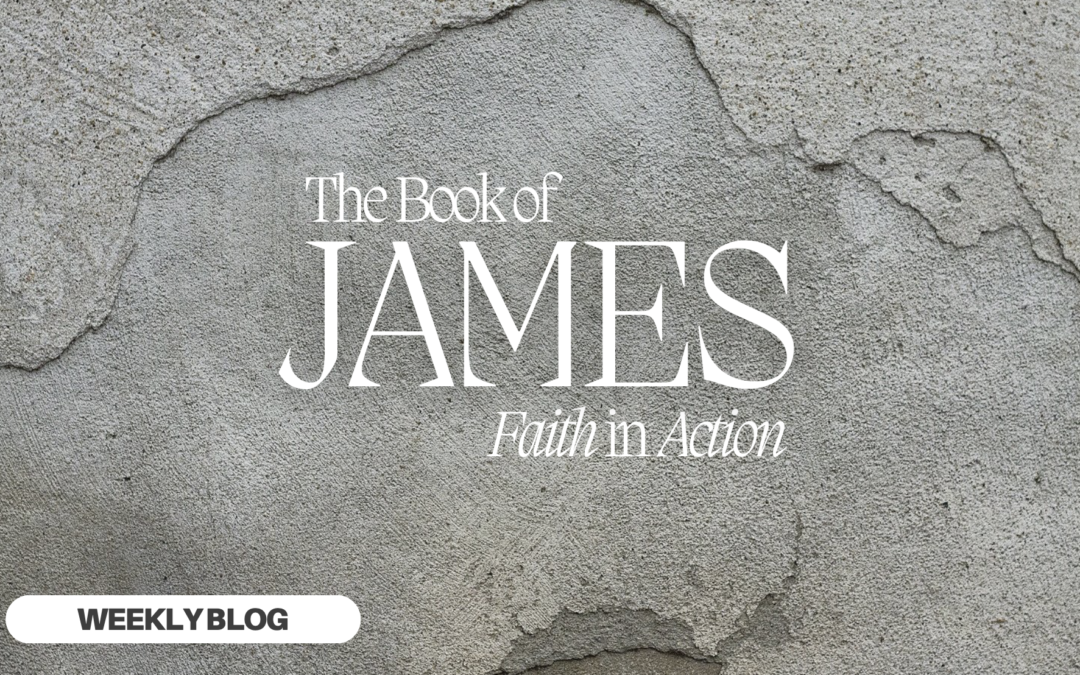JAMES—Week 3
James 2:1-13
We are in week 3 of our journey through the Book of James. While some have accused James’ letter of being contradictory to Paul’s letters, which emphasize salvation by grace alone, such is not the case. James is primarily concerned with how this salvation by grace should impact the daily lives of believers, and as we shall see in this week’s passage, one of the main hallmarks of a transformed life (a life of faith) is an impartial, unconditional love for others.
To truly understand this week’s passage, it is important to understand the culture and people to whom James wrote his epistle. As James’ church was located in Jerusalem, his primary audience were Jewish believers—believers who were struggling with both the call to a new way of life in Jesus Christ and their cultural and spiritual heritage. These men and women would have grown up in a culture that equated material wealth with the blessings of God. In contrast, poverty was a sign an individual was under the curse of God. While the teachers and scribes who espoused this view found their justification in passages such as Deuteronomy 28, Jesus clearly taught that such was not the case (Matt. 5:3; Mark 10:17-24; Luke 6:20-21, 24-25). Apparently, the Jewish believers to whom James was writing were still heavily influenced by this cultural view, honoring the wealthy in the church while debasing the poor. Additionally, wealthy believers were also using this emphasis on accumulating wealth to impact the world as justification for gaining wealth through abusive or suspect means. Yet, as concerned as James was about the partiality these believers were showing, he was even more concerned about the judgmentalism such partiality evidenced. James understood that there was no greater threat to unity within the church than judgmentalism. In fact, before the church even existed, Jesus warned about the dangers of judgmentalism in Matthew 7:1-5.
One of the most damaging effects of the Fall was the insecurity and shame it brought to our lives and our relationships. Immediately after eating from the tree, Adam and Eve felt the need to hide from God and each other, and that insecurity and shame caused them to turn a judgmental eye towards others. That shame and doubt (and the judgmentalism they cause) has been passed down through the ages and still plagues us today. Because we doubt the unconditionality of God’s love, we feel the need to self-justify, and, unfortunately, we often do so at the expense of others. Somehow, we believe that if we can point out how much more sinful someone else is, God will love us more. This hurtful attitude, which is rooted in pride, not only deprives us of a full and rich relationship with God, but it also poisons all our relationships. Because we fail to grasp the depth of God’s freeing love, we feel we have to compete for it, and in such a competition everyone loses.
As we grow in our faith, the evidence of that growth should be an ever-increasing display of mercy and love. As we grasp the depth of God’s unconditional love, as we comprehend the mercy He has given us, we understand there is no need to compete. There’s plenty to go around! We begin to love as we have been loved, excited to see others experience the goodness we have received.
Questions:
- Read Deuteronomy 28. How might that passage be used to justify equating prosperity with piety? How do Matthew 5:3; Mark 10:17-24; Luke 6:20-21, 24-25 refute such a reading?
- Does the church struggle with showing partiality today? Does the church struggle with equating wealth with blessing? If so, how do we combat such attitudes?
- Read Ephesians 3:14-21. Why would Paul be so concerned with us grasping the depth of God’s love for us?
- Why are judgmentalism and comparison so dangerous? How do they destroy unity? How do we combat them both personally and corporately?






